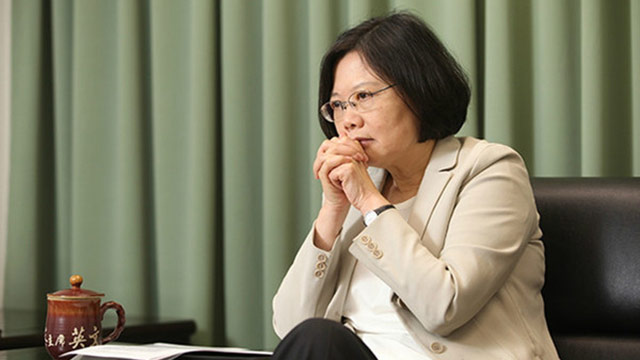By Zhu Songling, Institute of Cross-Strait Relations, Taiwan Research Institution, Beijing Union University
Since Taiwan has elected a new leader, Beijing has repeatedly explained its position on the future of cross-straits relations. So long as Taipei recognizes historic facts of the 1992 consensus that would establish positive interactions and sustainable developments for both sides.

However, since the DPP (Democratic Progressive Party) Chairman Tsai Ing-wen won the election on January 16, the DPP has avoided discussing the 1992 consensus. Tsai will be sworn in as Taiwan's new leader on May 20.
Whether she answers the "1992 consensus" in her inaugural speech, and how will she implement the cross-straits policy would be the keys to the future of cross-straits relations.
Tsai has a few options. She could adhere to the 1992 consensus to ensure peaceful development. Or she could continue to take an evasive attitude, by refusing to abandon the "Taiwan independence" proposition, so that cross-straits relations would return to old unrest.
Perhaps, Tsai would use ambiguous language to indicate cross-straits relations belonging to a special relationship under Taiwan's existing constitutional system in order to muddle through.
No matter which option Tsai undertakes, the historic facts of the 1992 consensus cannot be avoided, which allows no room for ambiguity.
The 1992 consensus is a touchstone for Taiwan's political forces, which will not be changed by any political party or individual changes. Not agreeing to it means not to accept that the two sides belong to one country, which could lead to serious misjudgments.
Beijing does not support separatist activities on behalf of Taiwan independence, would safeguard its national sovereignty and territorial integrity, and never let historical tragedy of the nation's separation repeat itself. Chinese President Xi Jinping had emphasized that the common aspirations and firm will of the entire Chinese people would be a commitment to history. Taipei must recognize the 1992 consensus, or it would destroy the common political basis for cross-straits relations, and undermine the status quo. Accordingly, the destroyer will bear full responsibility for it.
All vagueness in the past will be attributed to disillusionment. There is no room for the DPP to evade the 1992 consensus in words and deeds. The DPP should conform with historical trends realizing that both sides belong to one China.
Looking back at history, and looking to the future, can help us cherish our current achievements and to safeguard cross-straits relations. If there is no 1992 consensus, it is just empty talk to maintain the status quo.

Zhu Songling, Institute of Cross-Strait Relations, Taiwan Research Institution, Beijing Union University
( The opinions expressed here do not necessarily reflect the opinions of Panview or CCTV.com. )

Panview offers an alternative angle on China and the rest of the world through the analyses and opinions of experts. We also welcome outside submissions, so feel free to send in your own editorials to "globalopinion@vip.cntv.cn" for consideration.















